Welcome to Guidance, Private Sanctuary’s source for tips and techniques for the Pathfinder Roleplaying Game, written by Everyman Gamer Alexander Augunas. Today, we’re going to be talking about a webcomic called Housepets! and the lessons about campaign design that it can teach us. Also, I want to give a special thank you to Mr. Rick Griffon, author of Housepets!, for allowing me to post a few Housepets! comic strips into the article. If you like what you see, please click on this link and read more from Mr. Griffon’s archives.
Before we get started, I want to take a moment to explain this new type of Gibbering Mouth segment. For those of you who don’t get the reference, Algalon the Observer is a character in the World of Warcraft who’s primary function is to observe the titular world and judge it in the event one of its guardians perish. In the Algalon Paradigm, we’ll be looking at various fictitious worlds and doing the same thing: judging the heck out of them in our never-ending quest to improve our campaign settings. The exact types of worlds we’ll be looking at will change: they can be from books, movies, TV shows, or virtually any other storytelling medium. I’m going to try to stay away from the really well known sources. For example, everyone’s heard of Game of Thrones so I don’t need to spotlight George R.R. Martin. I’d rather use this type of article to point you in directions that is likely to be unexplored territory for my readers.
This, of course, is why I’m going to start this segment off by telling you to go read about a ton of cartoon animals.
Housepets! Love to Self-Promote
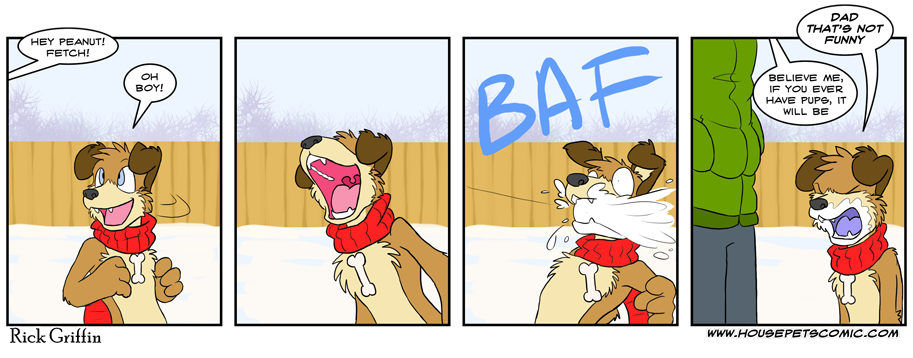
Housepets! loves to sucker you in with its feel-good strips before smacking you across the face with its feels.
Back in 2008 author and illustrator Rick Griffon began Housepets!, a webcomic set in a world with drastically different rules regarding its animal population. Although there isn’t a hard-or-fast rule regarding the topic, most of the animals that we (humans) keep as pets are anthropomorphized (meaning that they have human-like qualities and appearances) and are roughly the size of a toddler with some exceptions. Mice and similar rodents, for example, are anthropophized but normal sized while most zoo animals can talk but maintain a somewhat realistic body appearance. The author’s an avid member of the furry fandom, so if that’s not your thing you might not particularly enjoy this comic strip but the comic maintains a self-enforced PG rating, so you don’t see most of the negative stereotypes that people associate with this fandom.
As for the plot, Housepets! is generally simplistic. It functions on a gag-a-day strip format with some story arcs thrown it. At least, that’s how it started. Things start to get weird fast in Housepets!.
Housepets! Are Philosophical by Nature
In one of the early story arcs two of the main characters go with their owners (“Mom” and “Dad”) to visit for a week or so. This story arc is where we start to get a glimpse of how strange the Housepets! world actually is. In one of the opening strips the characters encounter their “Dad’s” brother, whom they call Uncle Jack. It’s at Uncle Jack’s ranch that we get a look into what ends up being a rather disturbing trend in Houspets!: despite their increased intelligence, most people in the world view pets exactly as we do today. Children are rough with them (understandable), zoos exist as sort of a “pet circus” and the animals who live there consider themselves kin to performers (kind of weird), feral animals like raccoons and opossums are outright hostile to pets and call them traitors to animalkin (getting weirder), and things like dogfighting rings, animal shelters, and animal breeders still exist (whoa, WHAT?). For all intents and purposes, the pets in Housepets! are humanoids with humanoid intelligence, yet they’re also bred to be used as pets in the exact same context as the real world. Its rather messed up and its this aspect of the comic that makes it truly intriguing from a world-building perspective.
All that and I STILL haven’t gotten to the really Pathfinder-applicable parts of this comic!
Housepets! Are Level 15 Dream Sunderers
Rick makes it very clear throughout the comic’s gags that he is a Dungeons & Dragons player; I don’t know if he’s a Pathfinder player too, but it’s a moot detail for the purposes of our discussion. We see a LOT of D&D references sprinkled throughout the comic: some of the pets play RPGs in order to pass the time while their owners aren’t around and numerous references are made at the game’s behest. There’s a very funny one-of strip about the vast amount of content that new players who enter the game late in its current edition are bombarded with, for example. But that’s not the real reason that this strip is so applicable to Pathfinder: the real reason is its cosmology.
You heard right, folks. A web comic about the shenanigans of house pets has a cosmology, and a really good one at that. Aspects of this cosmology are sprinkled in very slowly at the beginning and spread out through years of comics. Generally speaking, Rick typically has one comic arc per year that is devoted to his “Cosmic Nerdom” story arc, which I am about to summarize for you here:
Most magical beasts in human mythology are real and they exist as demigods. Housepets revolves around three specific ones: the griffon, the dragon, and the kitsune (yay!). In ages past, these three entities play a cosmic-level game with one another in which they empower mortals to cosmic level threats to mortal-kin, such as frost giants. However, two of the demigods got into an argument about how history should progress: one wants to use their influence to equalize humanity with the rest of the animal kingdom while the other one believes that this isn’t a decision that they should meddle with. As a result of their bickering, the dragon and the griffon agreed to a godly duel with one another in which they both amassed followers to compete in a shadowy religious war against one another to determine the fate of humanity. They request that the kitsune act as an impartial judge to their “game” and the loser is doomed to be trapped in a mortal body for one lifetime while the winner gets to enact his vision for the course of global history. It sounds epic because, frankly, it is. However, it’s also really funny when the entire plot line is effectively boiled down to a deific game of Dungeons and Dragons / Warhammer Fantasy Battle from the character’s perspective.
That’s the gist of it; the story arc is a lot more complicated then what I’m making it out to be, but I also want you to take the time to read it yourself so you’re going to have to deal with the spark notes version of the plot line. Where Housepets! shines is in its presentation of this storyline: Rick does an excellent job of keeping the gods god-like while accurately portraying mortal frustration in this context. All too often in literature and in gameplay we see the “idle playthings of the gods” trope enacted on the PCs, but frankly its not often that you see the relationship in the “master planner” sense. In Housepets!, you don’t have to revere a god in order to be its “follower,” or for a better term, minion. Overall it’s a very interesting concept that I definitely recommend checking out.
Housepets! Are Applicable to Pathfinder
Alright, now that I’ve talked a little bit about the comic, I’m going to quickly list some good lessons that can be applied to your Pathfinder games from Housepets!.
- When done right, the master/slave (or pet) relationship can be an absolutely fascinating thing to explore in a campaign setting. You can tell a lot about a culture based upon how best and worst of the privileged reacted to and treat the unprivileged.
- Without a doubt, interactions with powerful entities (like the gods) work best when the PCs are powerless to oppose them.
- To that end, the most memorable “villains” are the ones that make PCs squirm without actually harming them. You get to see a LOT of this throughout Housepets!.
- If you’ve ever had trouble GMing a true Neutral demigod or deity, the Great Kitsune is probably one of the best examples of a true Neutral deity that you could ever hope for. Here’s one of his very best lines:
[REDACTED]: “This is stupid! I don’t want to play by these rules!”
[GREAT KITSUNE]: “Unfortunately, you exist, and therefore you’re always playing by rules you didn’t agree to. That’s LIFE; deal with it for once. If you just relax and try to keep up, you might find that you actually enjoy it. Like any good game, there’s plenty of rewards after you earn them.
- Finally, and this is the greatest point of all, Housepets! is absolutely AMAZING at giving its deities personalities. As in real, comprehendible personalities. This can be very difficult for many GMs and designers. We want our gods to be align and beyond mortal understanding when really, in some primal way, they really aren’t. Sure, mortals might not understand the means by which the gods do as they do and they cannot comprehend the bigger scope of their divine happenings, but their personalities and motivations? Of course they can. And that’s another thing: motivations. The common Rick and Jane might not understand a demigod’s motivations because those motivations don’t involve him or her, but that doesn’t mean that gods should be utterly devoid of personality or motivation.
And that about wraps up this installment of the Algalon Paradigm for the Housepets! web comic. Definitely hop over to the comic’s page and give it a read for all its literally worth. What do you think? How do you utilize divine agents in your game? What is the most effective way to include a demigod / god in a story? Do you have any good recommendations for subjects of future installments of the Algalon Paradigm? Leave your comments and answers below and I look forward to seeing you next time!
Alexander “Alex” Augunas has been playing roleplaying games since 2007, which isn’t nearly as long as 90% of his colleagues. Alexander is an active freelancer for the Pathfinder Roleplaying Game and is best known as the author of the Pact Magic Unbound series by Radiance House. Alex is the owner of Everyman Gaming, LLC and is often stylized as the Everyman Gamer in honor of Guidance’s original home. Alex’s favorite color is blue, his favorite Pathfinder Race/Class combination is kitsune dark paladin, and he’s wondering how many people are going to stop reading this article at the word, ‘furry.’


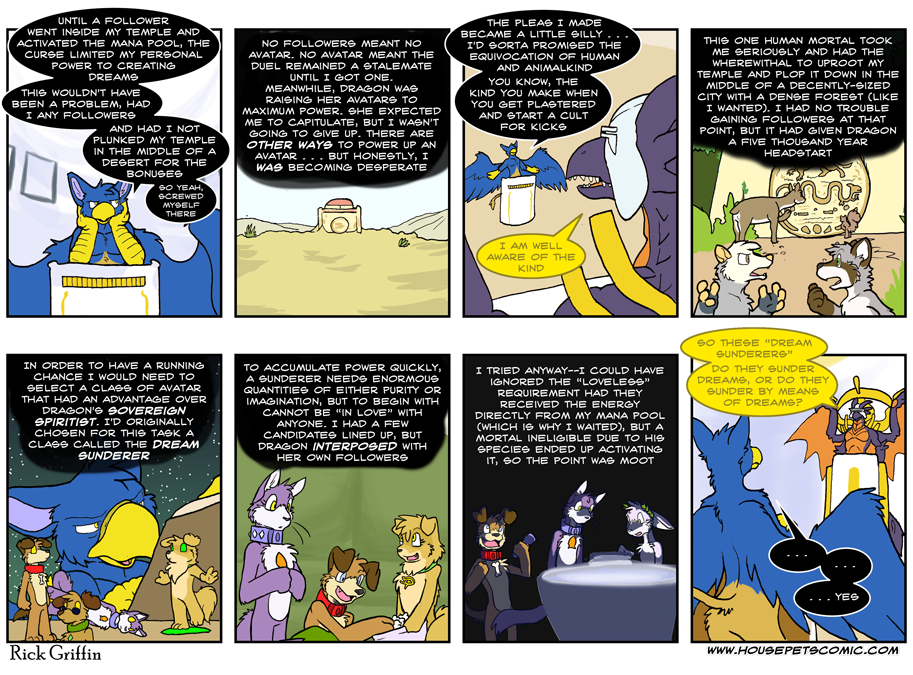
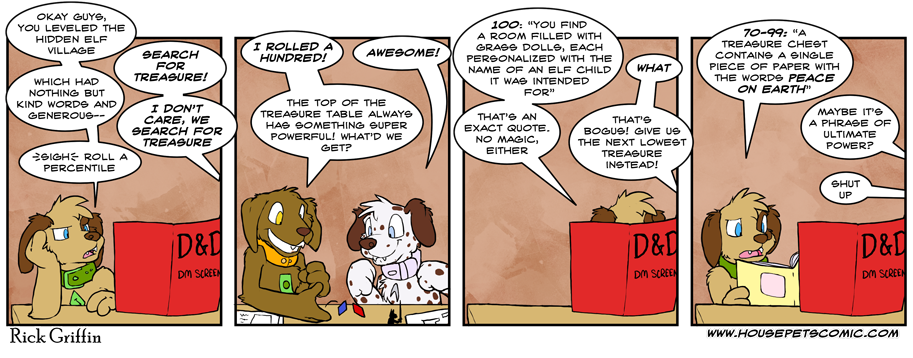
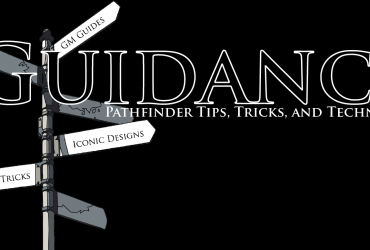
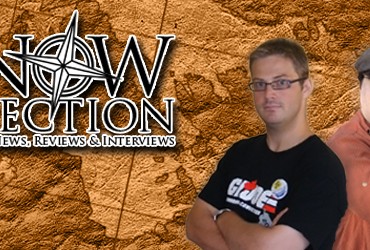



Leave a Reply